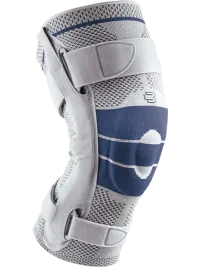Pickleball is a unique and fast-growing sport that combines elements of tennis, badminton, and ping pong. The paddle sport is not only enjoyable but also offers numerous health benefits. However, like any physical activity, pickleball has its own potential health risks. Here we'll review the advantages and potential hazards associated with pickleball.
BENEFITS OF PICKLEBALL
- Cardiovascular Fitness: Pickleball involves continuous movement, which promotes cardiovascular health. The combination of running, swinging the paddle, and quick reflexes help increase heart rate, improve circulation, and strengthen the cardiovascular system.
- Weight Management: Engaging in pickleball regularly can assist with weight management or weight loss goals. The sport's dynamic nature, which involves bursts of activity, burns calories and contributes to overall energy expenditure. Playing pickleball for just one hour can burn 400-600 calories, depending on intensity.
- Increased Strength and Endurance: The nature of pickleball requires players to use various muscle groups, including the legs, arms, core, and back. Constant movement and paddle swings improve muscular strength and endurance, leading to toned muscles and improved overall physical fitness.
- Enhanced Coordination and Balance: Pickleball involves precise hand-eye coordination and quick reflexes, which help to enhance motor skills, and the lateral movements and rapid changes in direction contribute to improved balance and agility.
- Social Interaction: Playing with friends, family, or joining local pickleball communities can provide a sense of belonging, reduce stress, and improve mental well-being while having fun!
HEALTH RISKS OF PICKLEBALL
- Overuse Injuries: Players are prone to overuse injuries due to the repetitive nature of pickleball movements, such as swinging the paddle. Common overuse injuries include tennis elbow (epicondylitis), shoulder impingement, and knee or ankle strains. Warm up properly, use appropriate equipment, and practice correct techniques to minimize the risk of these injuries.
- Falls and Trips: As a fast-paced sport, players may encounter falls or trips, particularly when moving quickly or changing direction abruptly. These incidents can lead to sprained ankles, fractures, or other injuries. Wearing supportive footwear and being cautious on the court can help prevent such accidents.
- Dehydration and Heat Exhaustion: Pickleball is often played outdoors, and the combined physical exertion and warm weather can increase the risk of dehydration and heat-related illnesses. It's vital to stay properly hydrated, take breaks, wear suitable clothing, and play during cooler times of the day to mitigate these risks.
- Eye Injuries: The fast-paced nature can lead to accidental paddle contact with the eye. While this risk is low, protective eyewear is recommended, especially for more competitive play, to safeguard against potential eye injuries.
WHEN TO SEEK MEDICAL ATTENTION
While generally a safe and enjoyable sport, there are instances when it is essential to seek medical attention. Consult a healthcare professional if you experience any of the following symptoms or conditions.
- Acute or Severe Injuries: If your injury appears minor, the RICE method (Rest, Ice, Compression, Elevation) may help with recovery. If you sustain a severe injury during pickleball, such as a fracture, dislocation, or severe sprain, seek immediate medical attention. These injuries may require specialized treatment, including immobilization, physical therapy, or, in some cases, surgery.
- Persistent Pain: If you have persistent or worsening pain in your joints, muscles, or any other part of your body which does not resolve with the RICE approach, get evaluated by a healthcare professional. This could indicate an underlying condition, such as tendinitis or a stress fracture, that requires medical intervention.
- Chronic Conditions: Individuals with pre-existing medical conditions, such as heart disease, respiratory problems, or musculoskeletal disorders, should consult their healthcare provider before engaging in pickleball or any physical activity. Your doctor can provide guidance on safety precautions and potential modifications to accommodate your condition.
- Signs of Heat-Related Illness: Prolonged exposure to heat and inadequate hydration can lead to heat exhaustion or heatstroke. Seek medical attention if you experience dizziness, confusion, nausea or vomiting, rapid heartbeat, or excessive sweating.
- Eye Injuries: In the rare event of an eye injury, it is crucial to seek immediate medical attention. Eye injuries should not be taken lightly, and a professional evaluation is necessary to ensure proper diagnosis and treatment.
Remember, it is better to err on the side of caution regarding your health. If you have any concerns or uncertainties about an injury or your overall well-being after participating in pickleball, it is always recommended to consult a medical professional who can provide appropriate guidance and care.
Pickleball is a sport that offers numerous physical and social benefits, making it an appealing choice for people of all ages and fitness levels. By being aware of these risks and taking appropriate precautions, players can fully enjoy the benefits of pickleball while minimizing the likelihood of injury. Remember to warm up, wear proper equipment, stay hydrated, and play safely to make the most of this exciting and engaging sport.
This article is provided courtesy of Thomas V. Giel, MD

